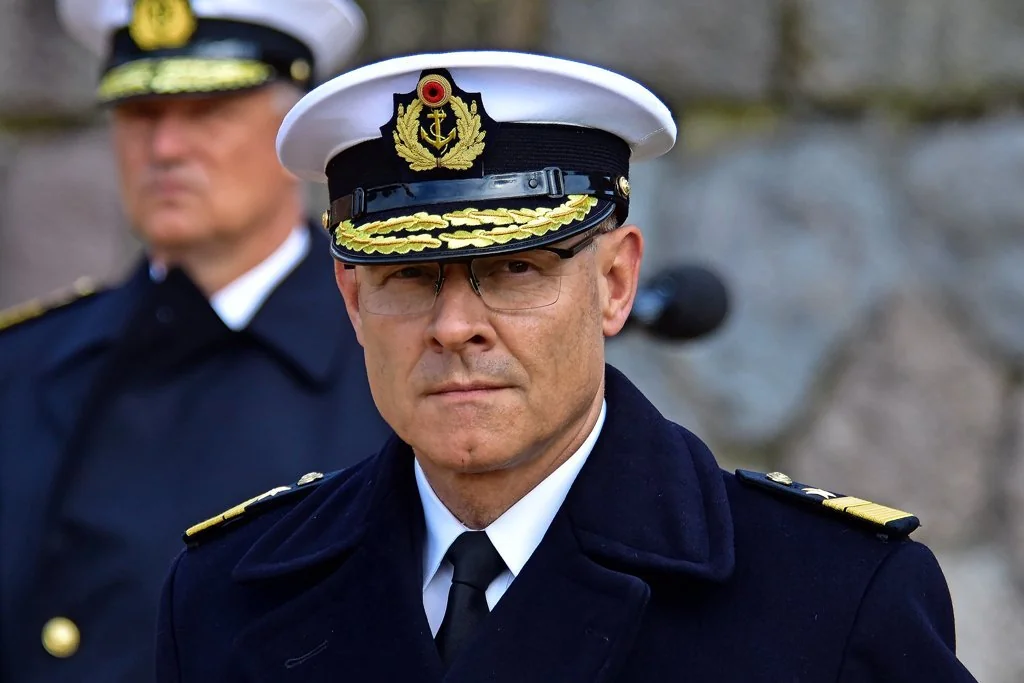German Navy inspector warns of growing Russian aggression

Vice Admiral Jan Christian Kaack, Inspector of the German Navy, has warned of “increased aggressiveness” from Russian units and their potential consequences, according to Spiegel as reported by Evropeyska Pravda.
“There are drone overflights, we have infiltration attempts, sabotage attempts,” Kaack said, Deutschlandfunk reported on 30 August. He added that Bundeswehr soldiers are being specifically contacted outside of duty hours, alongside threats to maritime infrastructure.
The warning comes after The New York Times reported that Russia or Russian supporters are using reconnaissance drones to monitor routes in eastern Germany used by the US and allies to transport military cargo to Ukraine, citing sources from US agencies and other Western states.
Kaack emphasized the risk of unintended escalation. “All this also carries the danger that there could be an escalation by accident,” he said. The navy has significantly strengthened its security measures in response, with precise rules of engagement designed to prevent such scenarios.
“We are working to better protect these bases in the air, underwater and above water, including with our own drone systems,” the inspector stated. Reports about increased flights of Russian spy drones serve as “a small wake-up call that we need to do more,” according to Kaack.
“The services assume that by 2029 at the latest, a potential adversary would be ready to cause trouble,” the Vice Admiral said, referring to intelligence findings. “And we want to prevent that by being defense-ready and capable of deterrence.” This applies to the Baltic Sea region as well.
In recent months, underwater cables have been repeatedly damaged by ships dragging anchors across the seabed. Ships from Russia’s so-called shadow fleet are primarily blamed for such incidents, though Chinese vessels have also faced accusations.
The German military has documented escalating drone activity throughout 2024. In February, German forces detected suspicious drones over a base where Ukrainian soldiers were training and investigated possible espionage. In May, unofficial reports indicated unknown drones circled near a German police patrol vessel in the North Sea that was monitoring a Russian cargo ship.
By early July, German government agencies finally began acquiring countermeasures against unknown drones occasionally spotted near sensitive facilities. In early August, reports indicated that 536 drones were detected over important facilities in Germany between January and March of this year.
Kaack praised the planned military service model approved by the cabinet on Wednesday. He expressed confidence that the planned voluntary military service solution would massively help the navy address its recruitment problems. “The new military service will be the game-changer,” Kaack said.
The inspector acknowledged being “always a friend of military conscription” but noted that the time since conscription was suspended in 2011 cannot be undone. The Bundeswehr will need time to restore capabilities abandoned at that time. The goal is to develop into a training navy that massively and regularly inspires large numbers of young people to commit for longer periods. “And that also takes time,” he said.
The German Navy is also investing in new equipment for enhanced security. The first Boeing Poseidon P-8 reconnaissance aircraft is scheduled for delivery in September, Kaack announced. Eight aircraft of this type have been ordered so far, with four additional orders under discussion. The navy will also soon have an underwater drone at its disposal.
However, Kaack warned that complete protection would never be possible.